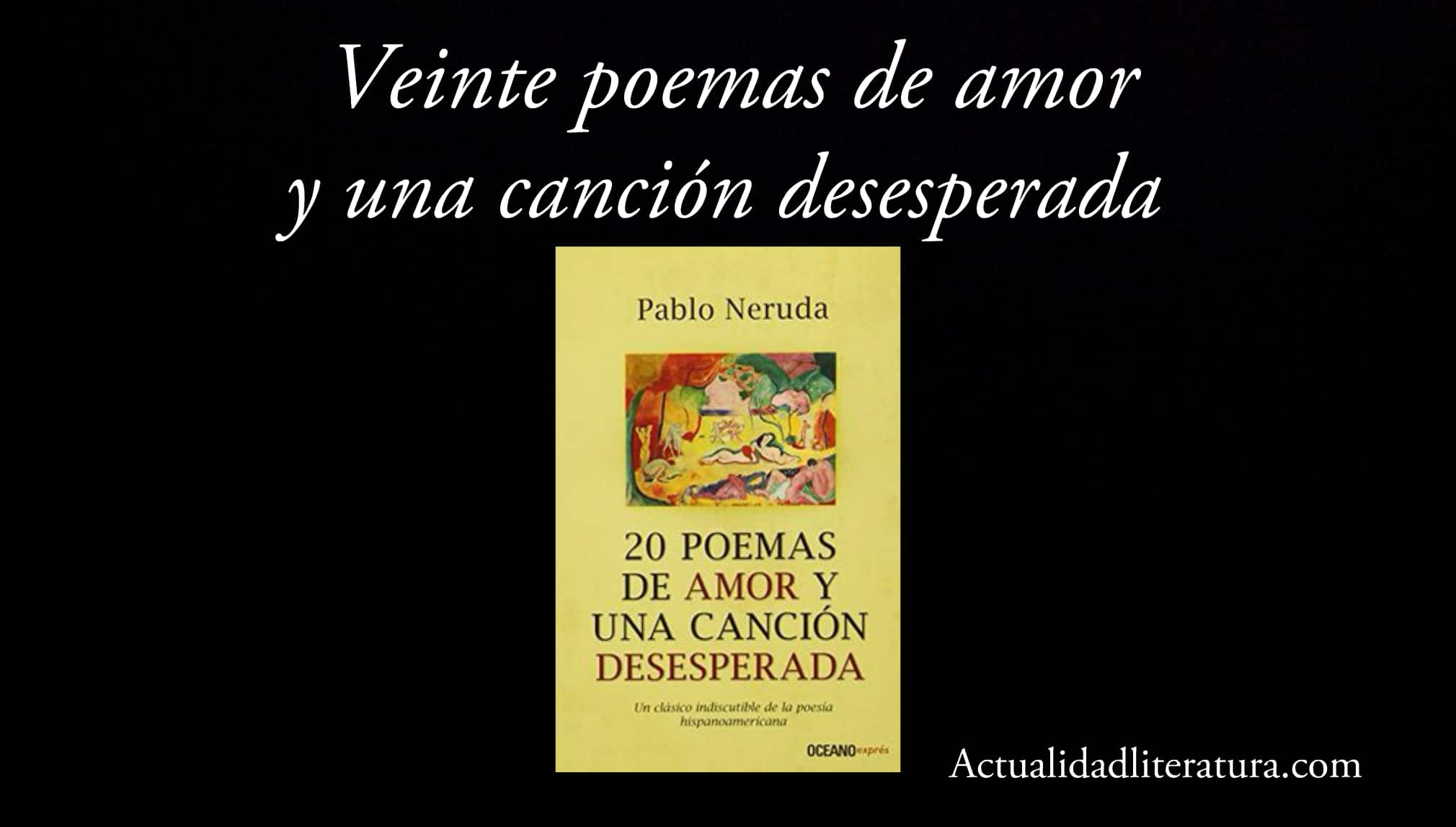
Pablo Neruda.
Pablo Neruda finished writing Twenty love poems and a desperate song when he was still 19 years old. Despite his youth, the Chilean poet achieved an exalted lyrical composition, characterized by his elevated forms of communication and a sublime literary level. Not surprisingly, this book is considered a fundamental reference within Spanish American literature.
In fact, at the time of his death the South American author (1973) Twenty love poems and a desperate song it already had more than two million copies sold. For this reason, It is probably the most widely read collection of poems of all time. According to the literary critic Harold Bloom, Neruda is - along with the Portuguese Fernando Pessoa - the most prominent poet of the XNUMXth century.
About the Author
Pablo Neruda is the pseudonym of Neftalí Ricardo Reyes Basoalto (Parral, Chile, 1904 - Santiago de Chile, 1973), winner of the Nobel Prize for Literature (1971). The Chilean poet chose this alias in honor of the Czech poet Jan Neruda. Throughout his literary career he passed from the warmth of Twenty poems to the bleak surrealism of Residence on Earth (1933-35).
Later, he expressed his political and social commitment in works such as General sing (1950) before evolving towards the expressive and thematic simplicity evident in Elemental Odes (1954-57). Similarly, these changes of themes and style demonstrate the adaptability of the poet when incorporating aesthetic innovations within his vast literary production.
Birth, childhood and first jobs
He was born on July 12, 1904. The month after his birth his mother died and he had to move along with his father to the town of Temuco. There he attended his first studies and met Gabriela Mistral, who brought him closer to the great classics of Russian literature. His first poem was The party song (1921), signed with the alias of Pablo Neruda (legally registered in 1946).
Likewise, en Temuco worked for the first time in a newspaper, continued work in Santiago as editor of The clarity, where they published several of his poems. In the Chilean capital he studied to be a French teacher and achieved international notoriety after the launch of Twenty love poems and a desperate song and Infinite man attempt.
Travel and contact with the Generation of 27
In the mid-1920s, he began holding consular posts in countries such as Burma, Singapore, Ceylon, and Java.. Later, he was in Spain (1934 - 1938). Where he related to artists from the Generation of 27 such as García Lorca, Rafael Alberti, Miguel Hernández, Gerardo Diego and Vicente Aleixandre, among others.
In the Iberian country he founded the magazine Green Horse for Poetry and made his support for the Republicans clear with his work in Spain in the heart (1937). In addition, Upon returning to Chile (1939) he became a member of the Communist Party. In 1945, he became the first poet to receive the Chilean National Prize for Literature.
His last years
Neruda used his position in the Senate to denounce the social problems of his time, which brought him clashes with the ruling political elite. Consequently, he had to request asylum in Argentina, later he took refuge in Mexico. During the early part of the 1950s he toured the USSR, China and Eastern Europe. He received the Nobel Prize for Literature in 1971.
That same year he resigned his candidacy for the presidency of Chile in support of Salvador Allende. The new president appointed him ambassador to Paris. However, he was forced to return to Santiago seriously ill two years later. Additionally, Allende's death due to Augusto Pinochet's rise to power affected him tremendously. The poet passed away on September 23, 1973.
Analysis of Twenty love poems and a desperate song

Twenty love poems and a desperate song.
You can buy the book here: No products found.
Structure and style
This collection of poems is made up of twenty untitled poems, except for "The desperate song. If the text is examined as a whole, the lyrical object of the book is not a specific woman, it is a universal archetype. That is, the loved person versus the loving person (the writer). In addition, Neruda himself declared that for his composition he evoked the memories of his youthful crushes.
As to style, Twenty love poems and a desperate song evidences broad features of literary modernism. Well, the text shows signs of structural innovations in the verses, a very marked musicality and some doses of preciousness. However, the uniqueness of this work became a reference for later poets.
Features
- A predilection for Alexandrian quartets.
- Use of verses in major art and, in several cases, of Alexandrians.
- Predominance of assonance rhyme.
- Use of sdrújulas and acute words in half of the verses of major art.
Themes
Love, the accompanying nostalgia for memories, and abandonment are palpable feelings throughout the book. In the same way, the entry of the poems is loaded with the eroticism originated between two young (and even naive) lovers. At the same time, the poet transmits that oblivion stalks with its silent veil every sensation experienced.
Moreover, the woman's body is treated as a fertile territory worthy of being thoroughly explored and cultivated. Where the desire to get in touch with her is never fully satisfied. Thus, the cravings of the loving speaker (the man who needs the land to till it) remain perennial.
Fragment:
"Woman's body, white hills, white thighs,
you resemble the world in your attitude of surrender.
My body of a wild peasant undermines you
and makes the son jump from the bottom of the earth.
I was just like a tunnel. The birds fled from me
and in me the night entered its powerful invasion ”.
Love and heartbreak
The poet constantly reflects his conflict regarding forgetfulness and nostalgia through metaphors related to night and darkness. By contrast, the beloved woman recalls the sounds of nature, the beauty of the sky, the stars and the heartbeat of life aroused by her. In front of his wife, the poet surrenders enthusiastically.
Desire through the word

Quote by Pablo Neruda.
Each promise issued by the speaker requires precise words capable of reaching not only the attention and the body of the beloved woman. Actually, phrase by phrase the poet approaches the ear of his female with the firm determination to reach her imagination. This aspect is evident in the following snippet:
“Before you they populated the solitude you occupy,
and they are more used to my sadness than you.
Now I want them to say what I want to tell you
so that you can hear them the way I want you to hear me ”.
The verb is the link
The word becomes an inescapable need for the loving subject. Therefore, the verb stands as an instrument used to transform an inert body into a lively substance and flourishing. At this point, pure love — free from all carnal desires — shows itself as an overriding need for affection.
Fear of abandonment
Finally, Neruda addresses heartbreak in phrases that reveal a basic fear of the human being: to feel abandoned. Then, the memories of a past pain emerge like a burden that the lover unwittingly carries and prepares the reader for the desperate song. Here are some phrases from the mentioned poem:
"You swallowed everything, like distance.
Like the sea, like the weather. Everything about you was shipwreck!"
A very detailed analysis of the work of perhaps the greatest South American poet of the last century. Its quality and magnanimity are unmatched.
-Gustavo Woltmann.